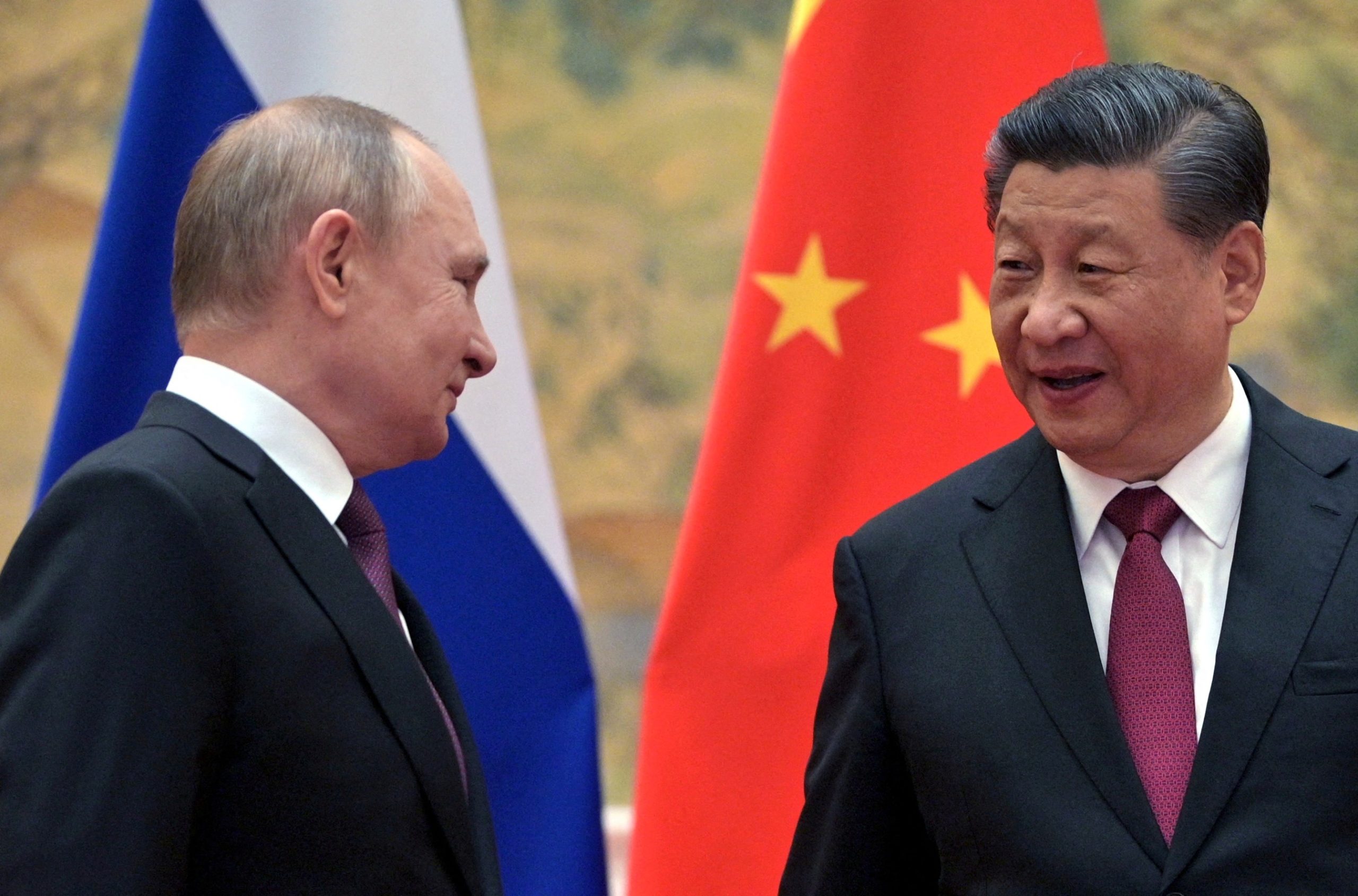The results of the Xi-Putin Olympic lovefest — China-Russia weekly update
Beijing and Moscow have affirmed their close ties, but China seems to be leaving itself wiggle room in its communications about the meeting between leaders Vladimir Putin and Xi Jinping.

Xi and Putin held their get-together last week in Beijing before the Olympics Opening Ceremony, after which the two sides issued a joint bilateral statement. Some key takeaways from it:
Both Moscow and Beijing reaffirmed “strong mutual support” for “core interests, state sovereignty, and territorial integrity.” Russia restated its support for “the One-China principle, confirms that Taiwan is an inalienable part of China, and opposes any forms of independence of Taiwan.”
- While the document appeared to identify Taiwan as one of Beijing’s core interests, there was no explicit delineation of Russian core interests — and no mention of Ukraine.
Beijing agreed to oppose further enlargement of NATO (although without explaining if this is a core interest of Moscow’s); both sides also restated their opposition to AUKUS and the Quad, although the latter wasn’t explicitly mentioned.
- The two sides condemned the American Summit for Democracy without naming it; they also contested the meaning of democracy while suggesting that Western governments use democracy and human rights to “put pressure on other countries.”
- Moscow and Beijing also agreed to strengthen ties between the EAEU (Eurasian Economic Union) and the Belt and Road Initiative, while reaffirming their security relationship through the SCO.
- There was no mention of the Russian-led CSTO, which played an important role in the recent crisis in Kazakhstan.
- The two sides said they “intend to develop cooperation” within the Russia-India-China format, one of the most sensitive topics in Sino-Russia relations.
The Chinese Foreign Ministry has yet to issue an English-language version of the joint statement, nearly a week after the Kremlin posted its own version. (The Chinese-language joint statement was posted here, on February 4.)
- A charitable reading is that the Foreign Ministry is experiencing some translation difficulties, even though it found time to publish English-language joint statements with Pakistan and Papua New Guinea.
- However, it’s more likely that China fears an escalation by Putin could trigger a public relations backlash, particularly in Europe, and is seeking to disassociate itself and Moscow (at least temporarily and publicly).
Natural gas deal signed but no terms over Power of Siberia-2
As expected, Beijing and Moscow inked a natural gas deal at the Xi-Putin bilateral summit.
Notably, the two sides did not conclude terms over the massive Power of Siberia-2 (PoS-2) pipeline, instead agreeing to the delivery of 10 billion cubic meters (Bcm) of natural gas along the Far Eastern route. For reference, the existing Power of Siberia-1 (PoS-1) pipeline will slowly ramp up to a full capacity of 38 Bcm per year and (reportedly) cost $400 billion with a contract term of 30 years.
Russia’s Gazprom, which currently holds a monopoly on pipeline exports, sends about 200 Bcm/yr to Europe in “normal” years. The terms of the Far Eastern route are not public, so it’s not possible to conclude if Beijing struck a hard bargain — or if it’s using the pipeline as a slush fund for Putin.
Why didn’t the two sides agree to PoS-2? Geopolitics may have played a role, as Xi may regard a splashy deal with Putin to be too controversial at this time. More likely, however, is that the deal was delayed (or even nixed) due to economics. Natural gas will likely persist for at least another decade or two, but its future is increasingly uncertain due to technological advances in solar, wind, green hydrogen, and even nuclear fusion. Neither side wants to provide up-front financing for natural gas infrastructure that could become obsolete (Russia was reportedly saddled with financing project construction costs for the Power of Siberia-1).
As we’ve mentioned before, PoS-2 negotiations will likely be paused (at least) for several months if Putin escalates in Ukraine.
Escalation in Ukraine?
Russian officials won’t attend the Munich Security Conference, which will be held February 18–20. The Olympics conclude on February 20, while the Russia-Belarus Allied Resolve military exercises will conclude on the same day. Meanwhile, six Russian amphibious assault ships have entered the Black Sea, and the Russian navy is operationalizing a de-facto naval blockade of Ukraine, further alarming many observers.
Some observers believe that the risk of an escalation is overhyped (and they could be proved right), but the preponderance of Russia-watchers believe an escalation is likely and could occur within the next two or three weeks.






